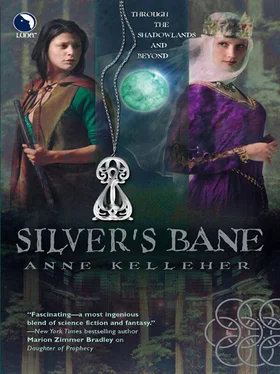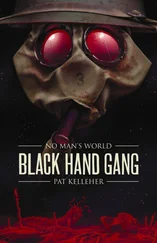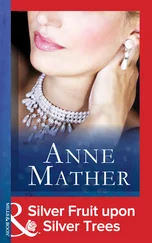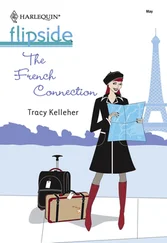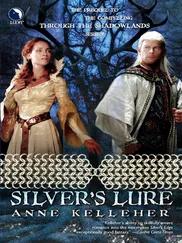Only one leather-clad attendant came forward, slipping out from a set of doors within the great trunk of an enormous tree, and Delphinea wondered once again why Finuviel had diverted any number of his host at all to guard Vinaver’s house. Secluded as it was within the heart of the Great Forest, and surrounded by the high hedge of bloodthirsty thorns, it appeared not at all vulnerable, except perhaps to a direct goblin attack. But was such a thing likely? From the talk of the Court, she had surmised that the war was expected to be fought on the borders of the Wastelands, not within the very heart of Faerie itself.
But the fact that Finuviel had regard for his mother’s safety made her like him, too, and she wondered if she was falling under the spell of his reputation. She followed the captain of the guard inside the house, trying not to gawk at the golden grace of the polished staircase that flowed seamlessly around the giant central oak forming the main pillar of this part of the house. From certain angles, the staircase was invisible; from others, it was the focal point that drew the eye up and into the leafy canopy forming the roof. She kilted up her skirts and followed the men up the steps, trying not to trip as the golden radiance filtered down, soothing and nourishing as new milk. She closed her eyes, her feet moving in some unconscious synchrony, bathing in the incandescence, forgetting for a moment the dire news they bore. There was only the warmth and the light. On and on, up and up, she climbed, and the face that filled her vision against the backdrop of rosy light was framed with coal-black curls. But instead of smiling, the face contorted in agony and Delphinea gasped, opened her eyes and tripped.
“Watch your step, my lady,” growled the guard who had Petri, by this time in a dead stupor, slung across his back.
Still groggy from the vision, Delphinea could only murmur. It was bad enough that the dreams came while she slept. If she was going to start having them while she was awake, she would have to talk to someone about them. Vinaver, hopefully.
But as they reached an upper landing, Ethoniel paused before a door and turned to Delphinea. “You’ve had a harrowing night, my lady. This may be somewhat difficult. I don’t expect Lady Vinaver will welcome this news.”
“But I want her to know I’m here—maybe there’s something I can do—” Maybe she will believe me if I tell her Finuviel is alive. But she left the last unspoken, and looked at him with mute appeal.
He looked dubious, but shrugged. “As you wish, my lady. The Lady Vinaver is given to some unexpected reactions on occasion. Beware.” He knocked on the door, and opening it, stepped inside an antechamber. He motioned Delphinea, and the guard carrying Petri inside, then knocked on the inner door. Vinaver herself opened the door.
All potential greetings died in Delphinea’s throat as the expression on Vinaver’s face changed from one of welcome to one of horrified disbelief at Ethoniel’s quick report. She had only stared at him, her eyes glowing with a terrible green fire in her suddenly white and flame-red face. Delphinea thought Vinaver might faint, and she wondered if it was that for which Ethoniel had sought to prepare her.
But nothing could’ve prepared Delphinea for the sight of Vinaver’s collapse, for she fell to her knees in a brittle crunch of bone, as the framework of her wings splintered like icicles. And as Delphinea watched in horror, the wings sheared away completely, the tissues tearing with the wet sound of splitting skin, leaving twin fountains of pale blood arcing from Vinaver’s shoulder blades.
She could think of nothing to say or do, for nothing but intuition made her sure that Finuviel was not dead. Not yet. And in that moment Delphinea understood that if anything really did happen to Finuviel, the consequences would be far more terrible than anything she had yet imagined.
As if from very far away, Delphinea heard Ethoniel bellow for Vinaver’s attendants, saw a very dark and burly stranger rise from a chair beside the fireplace and point in her direction. She felt the room suddenly grow very hot and very crowded, as more guards and attendants rushed in. Vinaver’s blood was flowing over her shoulders like a cloak, running in great waves down her arms, dripping off her fingers, soaking the fabric of the back of her gown. The captain turned on his heel, brushing past her, and she felt strong arms ease her off her feet, as the world finally, mercifully, went dark.
When next she opened her eyes, she was lying on a low couch in the little antechamber of Vinaver’s bower. The door to the inner room was closed. The couch had been placed next to a polished hearth in which a small fire burned. A basket of bread and cheese and apples had been placed beside her, and a tall goblet, filled with something clear that smelled sweet, stood beside a covered posset-cup on a wooden tray. A drone worthy of a beehive rose from the floor beside her. She looked down. It was Petri, lying curled up on a red hearth rug, in a round patch of sunlight, his head on a small pillow, sound asleep. Poor little thing, she thought. If her ordeal had been bad, his was surely worse.
“How d’you feel?”
She bolted straight up at the unexpected voice. It belonged to the big dark stranger she’d noticed in Vinaver’s bower before. He was sitting on the opposite side of the hearth, and she knew instantly what had drawn her attention, even amidst those few terrible moments in Vinaver’s presence. He was mortal.
It was so obviously apparent she did not question how she knew. He looked faintly ridiculous, for the stool on which he hunched was much too low for his long legs. He wore a simple fir-green robe of fine-spun wool, over a pair of baggy trews which from their rough and ragged appearance she assumed were of mortal make. The skin of his bare legs and feet poking out from the bottoms of the trews was bluish white, covered by a sparser pelt of the same coarse black hair that curled across his face. She wondered, with a little shock, if it were possible that Vinaver kept the mortal as a pet, just as in the songs the milkmaids sang, of moon-mazed mortals lost in Faerie, willing slaves to the sidhe. Her mother did not consider such tales seemly and scorned all talk of mortals. Delphinea had never imagined she would meet one, so she examined him with unabashed curiosity.
It was midmorning or later, and the light streamed down through windows set within the upper branches of the trees, filling the room with a brittle brilliance, casting strong shadows on the mortal’s dark face. He must be old, she thought, very old, even as mortals counted years, for his dark hair was shot through in most places with broad swaths of gray and white and his skin was grayish and hung off his face. Deep lines ran from the inner corners of his eyes, all the way past the outer corners of his mouth. His eyes burned with such intensity there was no other color they could be but black.
A tremor ran through her as her eyes locked with his, for it seemed that within those depths lay some knowledge that she not even yet imagined, coupled with pain, a lot of pain. His forehead gleamed with sweat, and as he raised his arm to mop his brow with a linen kerchief, she caught a glimpse of a white bandage, stark against his skin, beneath the vivid green. But his eyes were like twin beacons burning through a storm, and she realized that whatever the source of his pain, he wasn’t afraid of it.
She felt drawn to his solid strength, sensing that he was strong in a way that nothing of Faerie could ever be. His essence was all earth and water, unlike the sidhe, who were manifestations of light and air. One corner of his mouth lifted in the slightest hint of a smile. “You put me in mind of my daughter, sidhe-leen. All big eyes and innocence.” He closed his eyes, and winced as if in pain, then opened them. “I’m Dougal,” he said. “What do they call you?”
Читать дальше
